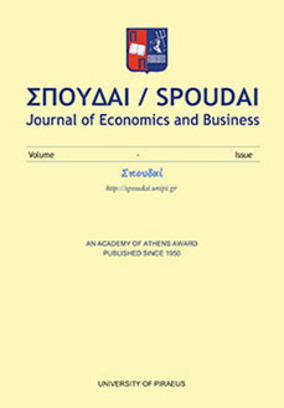Συσχέτιση των ικανοτήτων γνώσης και της απόδοσης των επιχειρήσεων
Part of : Σπουδαί : journal of economics and business ; Vol.54, No.3, 2004, pages 75-108
Issue:
Pages:
75-108
Parallel Title:
The relationship between knowledge capabilities and firm performance
Author:
Abstract:
In the new economy, the sustainable competitive advantage of business firms flows from the creation, ownership, protection and use of difficult-to-imitate commercial and industrial knowledge assets. Such assets include tacit and codified know-how, both technical and organizational. Resource-based theory argues that resources must be valuable, rare, inimitable, and lack substitutes to confer competitive advantage. Although scholars recognize a positive relationship between causal ambiguity and inimitability, the relationship among critical resources called competencies, causal ambiguity, and firm performance remains an unresolved conundrum. This paper takes a resource-based view to develop and test hypotheses that relates managers' perceptions of causal ambiguity to their firm's performance. The hypotheses examine relationships between firm performance and (1) causal ambiguity regarding the link between competencies and competitive advantage, and (2) causally ambiguous characteristics of competencies. Research involving 160 executives in 19 organizations provides valuable insights into the relationships between causal ambiguity and firm performance. Particular consideration is given to the differing ways top and middle managers in a firm may experience causal ambiguity and to how these differences may be understood and managed.
Subject (LC):
Notes:
Περιέχει πίνακες, υποσημειώσεις και βιβλιογραφία




